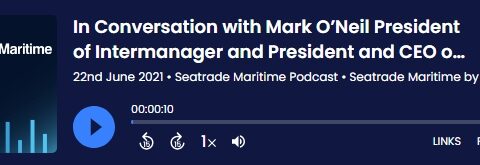Nigeria’s unorthodox energy market was in the spotlight at the chemical and product tanker conference run by the International Parcel Tankers Association and Navigate Events in London this week.
According to commentators, pirates attack product tankers and transfer the cargoes of gasoline or diesel at sea to another tanker, which is invariably a Nigerian tanker.
The cargoes then end up sold on the black market in Nigerian ports such as Lagos.
The entire process is, therefore, said by experts to involve collusion by Nigerian authorities. It is understood that the stolen cargoes help to make up for the shortfall in products at some gasoline station forecourts in Nigeria.
It is a situation that has been highlighted before, but having it discussed in front of an audience of product tanker owners and operators brought it into sharper focus.
“This is supporting Nigerian energy policy and that cannot be right,” said Ince & Co partner Stephen Askins.
The solution could be to force every Nigerian tanker to keep its Automatic Identification System switched on to determine its position at the time of an attack, he said. He highlighted the different types of piracy in West Africa. In the Niger Delta, pirates attack ships, take crew members for the ransom and often do not bother taking the cargo.
In other areas of the Gulf of Guinea, ships are attacked while at anchor in the port and the valuable cargoes of products are taken by the attackers.
If attacks are 12 miles inside a state’s territorial waters, it is armed robbery, rather than piracy, said International Maritime Organization head of maritime security Chris Trelawney.
Of 554 attacks in the last 10 years in the Gulf of Guinea, 444 were inside that 12-mile zone, with most of the ships stationary at anchor in the port.
The problem is due to organised crime and the lack of political will to do anything about it, said Mr Trelawney.
Although the US, France, the UK and Japan were among the countries trying to tackle the problem, there were concerns that they were focusing on the symptoms rather than the underlying problem of corruption, he said.
An information centre is being set up in Ghana to focus on piracy and armed robbery in the waters of West Africa.
As for the use of armed guards, the IMO’s position has not changed.
“The IMO’s position is that we have no position,” said Mr Trelawney.
By this, he meant that the decision to use armed guards on vessels depends on the policy of individual flag states.
For more maritime news see Lloyd’s List


